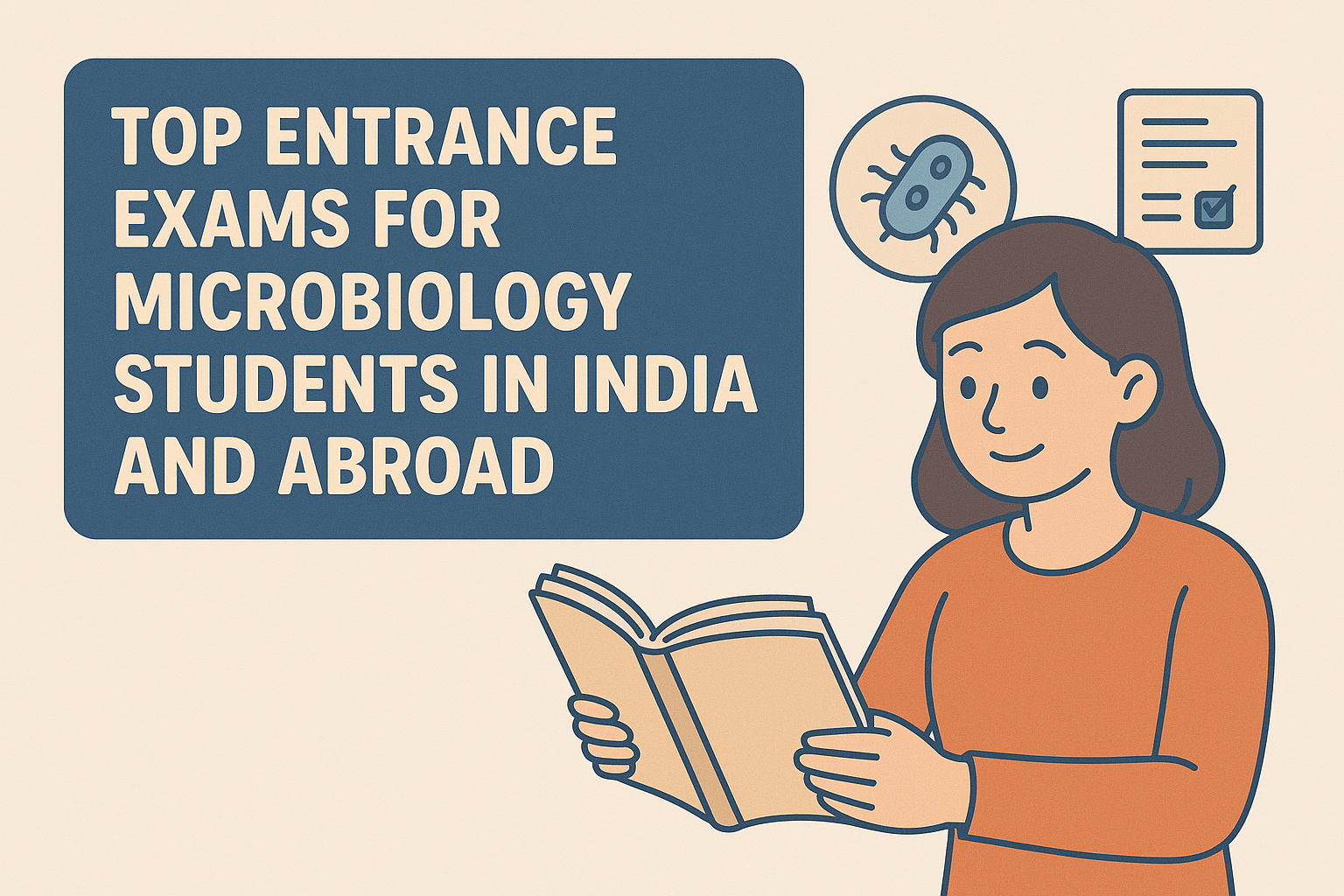Microbiology is the study of microorganisms also known as microbes. This field examines their Biology, interactions and effects on plants, animals and the environment. Microbiology is a good career choice due to its high demand in various sectors like healthcare, pharmaceuticals and environmental science. Have you ever wondered what these tiny organisms are or what impact they have? The blog below will provide a brief about what Microbiology is and its scope in the career path.
Microbiology
Microbiology is the scientific study of microscopic organisms including Bacteria, Fungi, viruses and protozoa. Microbiology is important because it is crucial for understanding, preventing, and treating diseases, as well as for fundamental ecological processes like nutrient cycling and waste decomposition. It is also essential in industrial applications like producing antibiotics, vaccines, and other biopharmaceuticals, and in agriculture for plant growth and food production.
Importance and Application
- Human Health: It is crucial for understanding how microbes cause diseases, leading to development of cures and vaccines.
- Environmental Impact: Microbes play a vital role in the environment through decomposition, nutrient cycle and maintaining soil and water quality.
- Industrial and agricultural use: Microorganisms are used in producing food and drinks (like cheese, beer, and bread), antibiotics, and insulin.
Microbiology Test
Microbiology Test is a laboratory procedure to identify and characterize microorganisms to diagnose and treat infectious diseases. It involves collecting a sample, such as blood, urine, or a swab, and analyzing it using methods like culturing, staining, or molecular techniques. This helps determine the specific pathogen causing an infection and guide the correct treatment.
How does it work?
- Sample collection: a sample is taken from the patient such as blood, urine, tissue or a swab from wound or throat.
- Sample analysis: the sample is analyzed in a lab using various techniques to identify the microorganism.
- The Common techniques are culturing, staining, and molecular methods.
- After the sample is analyzed then the patient is treated with the right cure and vaccine.
Microbiologist
A microbiologist is a scientist who studies microorganisms to understand their growth, characteristics, and interactions with their environments. Their work is crucial in fields like medicine, agriculture, environmental science, and industry, with a focus on research, diagnostics, and developing new treatments and products. If you’re wondering how to become a microbiologist, then BSc microbiology is your first step. The program provides students with key qualifications necessary to excel in laboratory and research centre or healthcare facility positions.
What do they do?
- Conduct research
- Develop new products and treatments
- Study microorganisms
- Ensure safety and quality control
- Specialization in specific areas like bacteriology, virology or immunology
Top Entrance Exams for Microbiology in India and Abroad include
Microbiology Entrance Exam in India
| Exam | Fee structure (approximately) |
|---|---|
| GATE (Graduate Aptitude Test in Engineering) | Varies (INR 1,500 - INR 2,000) |
| CUET (Common University Entrance Test) | Variable (includes application fee, typically a few hundred to a few thousand rupees) |
| IIT JAM (Joint Admission Test for M.Sc) | Varies (INR 1,500 - INR 2,000) |
| ICAR AIEEA (Indian Council of Agricultural Research All India Entrance Examination) | Varies (INR 1,500 - INR 2,000) |
| UGC NET (University Grants Commission National Eligibility Test) | Varies (INR 1,000 - INR 1,120) |
| CPGET (Common Post Graduate Entrance Test) | Varies (INR 800 - INR 1,000) |
For Abroad
| Exam | Fee structure (approximately) |
|---|---|
| GRE (Graduate Record Examinations) | $205 |
| SAT (Scholastic Assessment Test) | $60 |
| TOEFL/IELTS | $220 for TOEFL and $215 for IELTS |
| GMAT (Graduate Management Admission Test) | $275 |
Microbiology Exam for MSc Microbiology
To get into M.Sc. Microbiology first you need to pass the entrance exam to get admission, as many universities use exams like the CUET PG, GATE or specific university level exam. The format typically includes multiple-choice questions (MCQs) and long or short-answer questions, depending on the university and specific paper. The final exams will cover core microbiology topics, with topics like microbial physiology and metabolism as seen in a sample question paper, as well as other subjects like genetics, immunology, and virology.
How to prepare for M.Sc Microbiology Exam
- Review the syllabus
- Practice with sample papers
- Focus on core subjects
Microbiology Syllabus
Microbiology Syllabus includes foundational topics like microbial diversity, cell biology and microscopy, along with more advanced subjects such as microbial physiology, genetics, and immunology. Core curriculum areas often include molecular biology, virology, and biochemistry, with specializations in areas like industrial, environmental, or medical microbiology in later semesters or graduate programs. Laboratory components are a significant part of the curriculum, teaching techniques like culturing, staining, and advanced methods in
molecular biology and biotechnology.
A B.Sc Microbiology Syllabus includes subjects like Biochemistry, cell structure and immunology along with specialized topics such as microbial genetics, molecular biology, biotechnology, and medical microbiology.
A M.Sc Microbiology Syllabus includes core subjects like microbial physiology, genetics, and biochemistry, along with specialized topics such as virology, immunology, and microbial ecology. The curriculum includes both theoretical coursework and practical lab sessions.
FAQ'S
Q1. What are the various entrance exams for MSc Microbiology?
Ans. Entrance exams for M.Sc. Microbiology includes national-level tests like GATE, CSIR NET, and CUET PG, as well as university-specific exams such as those conducted by JNU, DU, and BHU. Other common exams are IIT JAM, ICMR-JRF, and JGEEBILS.
Q2. Are there any entrance exams to get an MSc in life science?
Ans. Yes, many entrance exams are required for the MSc exam in life science, with some being national-level exams like the IIT JAM and CUET PG, while others are university-specific exams like the BHU PET or the AIIMS M.Sc. Entrance Exam.
Q3. Where can I study MS/MSc microbiology in India?
Ans. You can study M.Sc. Microbiology in India at numerous universities, including the University of Delhi, Banaras Hindu University, Jawaharlal Nehru University, Osmania University, and Panjab University. Other reputable options include St. Xavier's College (Mumbai), Amity University, Pondicherry University, and University of Hyderabad.
Q4. What do you mean by Microbiology?
Ans. Microbiology is the scientific study of microscopic organisms including Bacteria, Fungi, viruses and protozoa. Microbiology is important because it is crucial for understanding, preventing, and treating diseases, as well as for fundamental ecological processes like nutrient cycling and waste decomposition.

